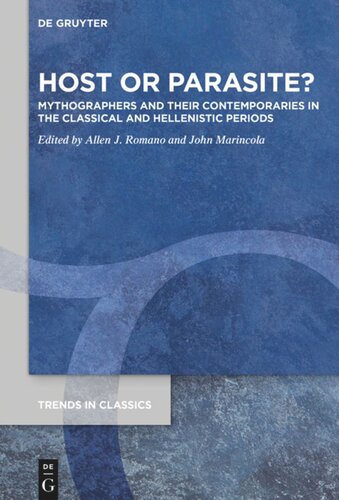

Most ebook files are in PDF format, so you can easily read them using various software such as Foxit Reader or directly on the Google Chrome browser.
Some ebook files are released by publishers in other formats such as .awz, .mobi, .epub, .fb2, etc. You may need to install specific software to read these formats on mobile/PC, such as Calibre.
Please read the tutorial at this link: https://ebookbell.com/faq
We offer FREE conversion to the popular formats you request; however, this may take some time. Therefore, right after payment, please email us, and we will try to provide the service as quickly as possible.
For some exceptional file formats or broken links (if any), please refrain from opening any disputes. Instead, email us first, and we will try to assist within a maximum of 6 hours.
EbookBell Team

5.0
98 reviewsBuilding upon the explosion of recent work on mythography, contributions to this volume direct attention to less frequently explored questions of how ancient poets, historians, and philosophers themselves adopted and adapted the work of mythographers. Study of the way that mythographers and their contemporaries take on positions of, alternately, “host” or “parasite” in relation to the other exposes the richness mythographic practice and the roles that mythographers played in the evolving Greco-Roman discourse of myth. From, among others, the seeds of mythographic discourse in Pindar and Plato, to the mythography of the Peripatics, the in-between mythography of Diodorus Siculus, and the “mythographic topography” of Pausanias, this volume invites a reappraisal of the role that mythography played at every stage of Greek thought about myth. Through contributions that explore both mythographers’ distinctive style of studying myth to other contributions that focus primarily on the how and why of non-mythographers’ use of mythographic techniques, what emerges is a picture of mythography that broadens our conception of mythography while at the same time inviting scholars to seek out more such echoes of mythographic discourse in the work of poets, historians, philosophers at large.